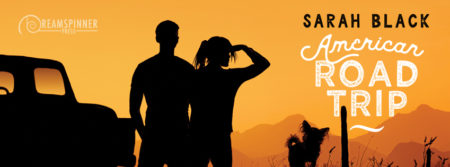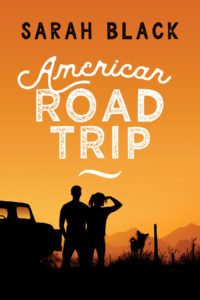
Crossing Gender Lines: Empathy and the Search for Authentic Voice
by
Sarah Black
What matters to me most as a writer is authentic voice. I need to get that right for characters to come alive and take their turn on the stage. It’s a critical piece in the preparation, and I spend a great deal of time wandering around talking to fictional characters and listening to them, thinking about what they would say or how they would respond to situations, and trying out their voice. I’ll usually write for a bit in both first and third person to find the best fit. The hardest part for me is not jumping the gun, because the writing, the storytelling part and finding out what comes next, is really so much fun. But if I start writing too soon, before I have that authentic voice in my head, the story usually drifts to earth like a balloon with a slow leak and ends up squashed flat in the mud.
So how do writers cross gender lines to write an authentic character’s voice? Or, can we ever really know each other? Sometimes, and sometimes not. I believe that the quality of empathy is the critical piece, and the ability to leave one’s own ego behind to put on another’s skin. To feel with another’s heart. Empathy is partly innate and can also, I believe, be developed.
But crossing gender lines to write an authentic character is quite a challenge for some; for others, it flows like water. Consider Tennessee Williams and Ernest Hemingway. Williams wrote the most exquisite real authentic female characters in Laura from The Glass Menagerie and Blanche DuBois in Streetcar Names Desire, to name just two of the most well-known. He nailed those characters! Ernest Hemingway, I am sorry to say, could not write an authentic woman, ever. He knew more about being a man than nearly any writer in the world, but his female characters were cardboard with breasts. Women were a mystery to him, and remained a mystery.
Hemingway scholars are probably preparing a writ for treason. I have to say, it’s not a bad thing for characters to be a mystery to their writers, but in order to do them justice, especially when crossing gender roles, it is essential to observe carefully and think, without the filter of the writer’s own gender roles and beliefs. That is the critical piece, I think: to observe with empathy, and to not filter those observations through one’s own femininity or masculinity. Because for writers, the story can’t be about us. The story has to be about the characters.
I write about veterans because I’m a vet! It’s easier for me to write about these familiar characters, people like those I grew up with. I have a lifetime of memories and experiences to draw from when forming these characters. I grew up watching a bunch of sailors working under the hoods of old cars and trucks, putting them back together. I was usually allowed to find the tools they needed and fetch beers, and Band-Aids when injuries occurred. My first car, a 1960 Ford Fairlane, was put back together by a bunch of sailors. I had a pack of older brothers/uncles who checked the engine every time I stopped that car, and reminded me to check the tire pressure and change the oil. My first major crush didn’t give me flowers, but a tire pressure gauge, which he tucked into my hand when no one could see.
When I think about those guys, and wonder if any of them were forced to hide, to pretend for their entire lives to be someone they were not, and to have their human potential cut short by the pressures of living a lie, my heart just breaks. And not just for them, but for everyone who is forced by pressures outside of themselves to be or act or do something that is not in their nature. For me, what it means to be inauthentic, to live a lie and pretend always, means the human potential is lost. Lost for all of us. So my characters are also often gay. I want them to have that authentic life. I want them to speak in an authentic voice. And my only job as a writer, I think, is to get that voice right. If I do that, then the characters take over, and they can tell their own story.
I do believe people should be able to tell their own stories. Especially for people who have not had the freedom to speak their truths, writing their own stories is part of peeling away the layers that have constrained them. But that is for memoir, and we’re talking about fiction. For fiction, for telling stories, I believe writers can cross those lines, with empathy and respect, and write authentic characters.
My new story, American Road Trip, is out from Dreamspinner March 16. I had a hard time letting these characters go, so I wrote an epilogue story called Tino Takes the Cake, about their wedding preparations. This free epilogue story will be on Dreamspinner’s blog on release day.
 Title: American Road Trip by Sarah Black
Title: American Road Trip by Sarah Black
Publisher: Dreamspinner Press
Genre: Contemporary, Gay, Romance
Length: 86 pages/Word Count: 30,535
Summary:
A single moment—or a single mistake—can change everything.
When Captain James Lee Hooker and his lover, Sergeant Easy Jacobs, were in the Army, they made a mistake that got a young soldier hurt. Three years later, they’re civilians again, living far apart, haunted by what they lost. Now that young soldier needs their help.
With his grandmother’s one-eyed Chihuahua riding shotgun, James Lee climbs into Easy’s pickup for a trip across the American Southwest. They set out to rescue a friend, but their journey transforms them with the power of forgiveness.
Add to Goodreads.
Purchase Link: Dreamspinner Press
Author Bio
Sarah Black is a writer, artist, veteran, and mother. She is a Lambda finalist and has been nominated for a Pushcart.
Author Links: Dreamspinner Press * Twitter * Goodreads

Sarah, I enjoyed your essay on empathy and crossing gender lines. I have noticed that some writers have characters who are, as you say, “cardboard with breasts”. And have read, in wonder, books whose characters seem real, despite their difference from the author.
thanks very much for reading; I enjoyed getting to blog here!
I enjoyed having you ☺️
Thank you so much for sharing your thoughts and experiences, Sarah. It was quite interesting to read. Much success to you!
taina1959 @ yahoo . com
Thank you, Sandra
Thank you for the post Sarah. I’m looking forward to giving this a read.
Thanks, HB- I hope you like the story!
Thanks for sharing your thoughts
Thanks for reading, Timitra
Sarah, the respect for your characters always shines through in your writing. I didn’t have to read this post to understand why that is, but I’m glad I did! I’m so happy you’re sharing another story with us. I’ve had it preordered for a while now, but I hope you’ll forgive that I haven’t gobbled it up right away. I lived with the possibility for awhile that more books might not be forthcoming, so I want to savor this one’s existence for a bit.
P.S. While I have you here, is there a possibility of getting your Idaho stories together in one paperback, since I know they’re not long enough for print individually? Don’t get me wrong, I LOVE the General and the Horse-Lord books, but the lack of more of your stories in paper form makes my bookshelves weep. And don’t think this is some quick random thought, I want you to know I suggested this very thing to DSP years ago. I’m here for you writing the books exactly as long as you need them to be, I just also want to find a way to get them in print! 😀